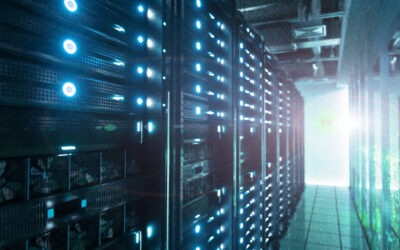If you’ve got as far as deciding you need a data centre, you are probably starting to look at your options. But how do you choose the best colocation data centre for your business? And what makes a data centre a ‘good fit’ or not?
Let’s break it down into three key areas data centres can set themselves apart from others:
-
Infrastructure
-
Support
-
Value-added services
Infrastructure
Within data centres, infrastructure refers primarily to:
- Power
- Cooling
- Physical security
- Fire detection and suppression
Most modern colocation data centres in the UK operate at a minimum of Tier 3 standard, so from an infrastructure standpoint there shouldn’t be a lot to choose between them. And while this in true on paper, there are differences between Tier 3 data centres.
The most important factor in data centre infrastructure is its resilience, which is why you’re looking for at least N+1 power and cooling – the two things your servers absolutely cannot do without.
N+1 simply means that your component (N) has a backup (+1), so that if a piece of equipment breaks, the data centre can keep operating. Even better than N+1 is 2N, which means a data centre has double the infrastructure it needs to keep operating, which is what we have at Redcentric for our power infrastructure, and how we’ve never had a power failure.
Once you know what your data centre is offering in terms of infrastructure, it’s also worth asking questions to check how well they look after this infrastructure:
- How often do you test your power systems?
- What is your preventative maintenance program?
- What SLAs do you have in place?
These questions are a good indication of how well they will look after you.
Another key question to ask is how they have responded to major incidents in the past. Crucially, keeping customers informed of the latest with the data centre’s infrastructure is as important as resolving the incident itself. The nationwide lockdown for Covid-19 is a good example of a major incident that every data centre has gone through.
Support
So the infrastructure is looking good, but does the data centre have the technical staff in place? If something goes wrong with the power or cooling, will they be waiting on engineers to come and fix it, or do they have the capability in house for general troubleshooting? Having high-level technical support, available around the clock within the team saves a lot of time and ensures the continuation of business as usual in the event of an incident.
A remote hands service means a data centre’s engineer will take care of something hardware related on your behalf.
On the IT side, most data centres offer a remote hands service to save you the bother of visiting every time a server needs turning on and off again. But the more expertise they can offer, the more they can manage on your behalf. As a customer, this is a big differentiator and something worth exploring when you are making your choice of provider.
Value-added services
As well as remote hands, there are other services that data centres can provide. For example:
- Integrating wide area networks
- Providing managed firewalls and other cyber security solutions
- Comfortable facilities for your visiting engineers to use
- A willingness to provide guidance on areas you don’t have knowledge
For companies that don’t have that level of expertise in-house it can be really beneficial to partner with a data centre who can bridge the competency gap. Take cabling for example; laying cables in a way that they’re well organised, labelled and getting enough air is a real artform – and one that’s invaluable when it comes to diagnostics in the case of a problem. Finding a data centre that can support you or even do it for you can save a lot of trouble down the line.
Set your expectations and work from there
While having proper infrastructure is important, it’s fairly straight forward to look at what equipment a data centre has in place, as well as their performance in the last few years, and then compare like for like.
The best thing you can do when choosing a data centre is think about how much support you will need and use that as the basis for your decision, since this is trickier to compare between data centres. For example, at Redcentric, we’re proud to provide our clients with up-to-date data protection advice, and guidance on even the most complex IT setups, like hybrid cloud.
These additional services and the expert support that a data centre offers are the difference between being a colocation provider and a partner.

